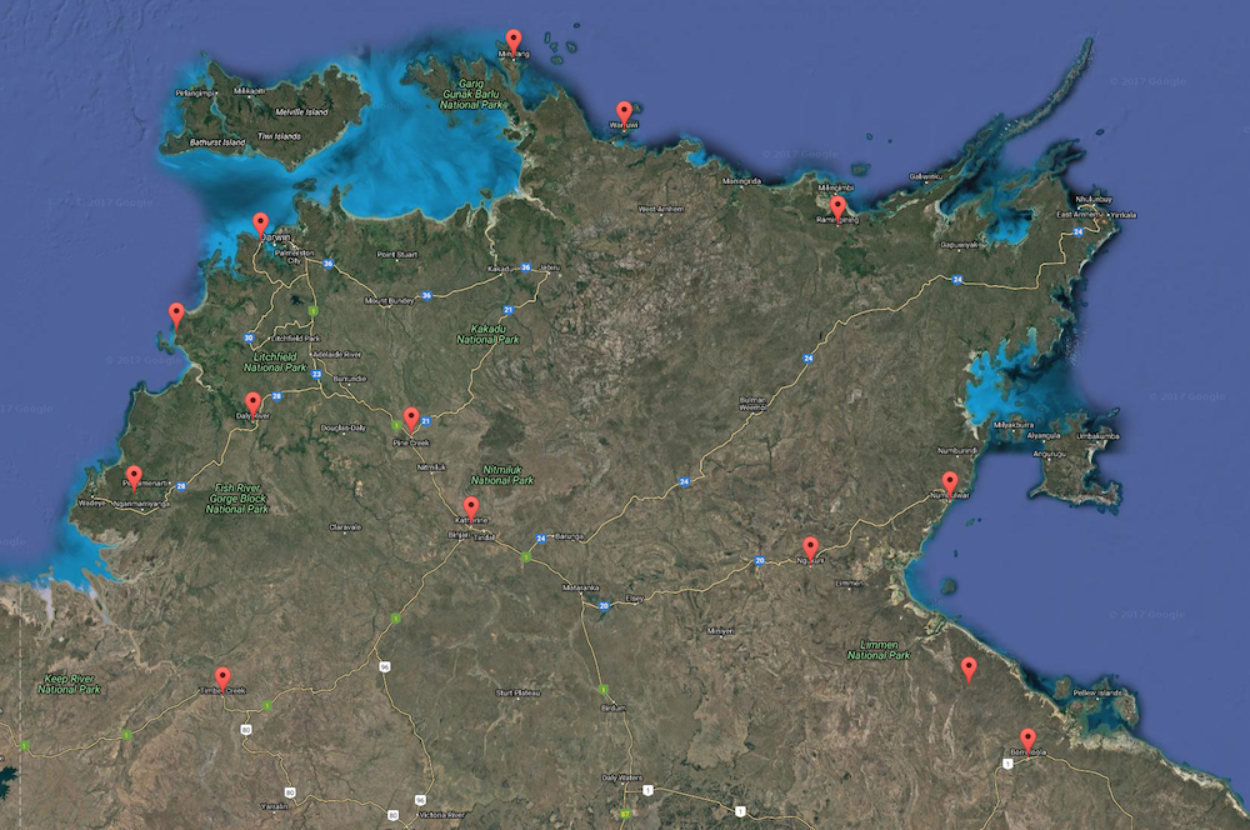Ranger Groups
NLC’s Caring for Country rangers operate across almost 200,000 square kilometres of land owned by Aboriginal people in the NLC's area, which includes about 87 per cent of the Northern Territory’s coastline.
Ranger groups provide a formalised structure for the transfer of traditional knowledge from old to young, as well as being a vehicle for land and sea conservation and the training and employment of young Aboriginal people living in remote areas.
To support the ranger groups' activities, the Caring For Country Branch has developed partnerships with a number of external funding agencies including Territory and Federal Government departments, various research bodies and organisations. As more ranger groups join the ranger network, Aboriginal peoples' ability to care for country and manage pests will also increase. This growing capability is already recognised at a national level, with Aboriginal rangers now also playing important roles in border security and quarantine protection.
The Ranger Groups
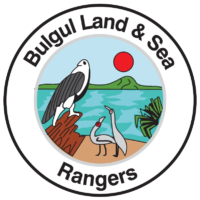
Bulgul Land and Sea Management
The Bulgul Land and Sea Management program manages 36,000 hectares of land and sea country across the Delissavale/Wagait/Larrakia Land Trust and undertakes extensive weeding, fire management and beach patrolling works. This ranger group also utilise both chemical and biological solutions for weed management works, which focus on Mimosa and Olive Hymenachne. Managing such a pristine environment has it perks with many migratory bird and marine species frequenting the land trusts and coastlines. The vulnerable Flatback turtle (Natator depressus) is very common along the coastline, laying eggs all year around; the Bulgul rangers consistently survey their numbers and hatchlings, ensuring that visitor and predator interactions are kept to a minimum.
Working closely with the Finnis-Reynolds Catchment Groups, the ranger group has been successfully monitoring and managing feral pigs, reducing erosion and spread of disease on the land trust and opening up opportunities for further collaborative research.
Core Activities
Invasive species control (weeds, feral animals), fire management (managed burns and wildfire response), beach and ghost net clearance, cultural support, environmental monitoring (soil, water, native species), sacred site protection, cost recovery works, compliance.
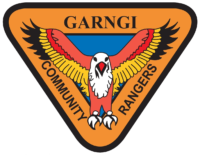
Garngi Land and Sea Management
The Garngi ranger group undertake work across approximately 110 000ha's of land and sea country at Croker Island and nearby mainland areas of cultural connection. Garngi rangers often work closely with the Mardbalk and Adjumarllarl ranger groups to restore the integrity of biodiversity in the northern sector of the internationally-significant Murganella flood-plain. Like most ranger groups they have an extensive weed management program in place to eradicate invasive and destructive species on the island including Mimosa pigra, Leucaena leucocephala (coffee bush) and Cenchrus sp. (mission grass.). The rangers have seen a successful reduction in Mimosa through ongoing seedling removal occurring around Minjilang floodplain. Animal management is also a core activity on the island, with many invasive and problem species causing havoc to environment and community dealt with through the ranger program; from continual training the rangers now relocate problem crocodiles, providing a sustainable solution to crocodile management. The rangers also monitor barge and barge ramps for cane toads; there have been no cane toads reported on Croker Island.
Core Activities
Invasive species control, fire management, beach and ghost net clearance, cultural support, environmental monitoring, sacred site protection, cost recovery, compliance
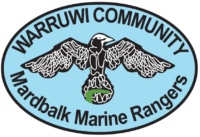
Mardbalk Land and Sea Management
Mardbalk rangers manage more than 440,000 hectares of land and sea country, including the Goulburn Islands and adjacent mainland areas of cultural significance. Invasive animals such as horses, pigs, and goats are managed on the islands, as well as buffalo and bantang on the mainland. A number of pig infestation sites have been targeted for management.
The ranger group also undertakes crocodile and fire management work alongside the Garngi and Adjumarllarl ranger groups. Extensive weed control and burning work was undertaken around the Northern reaches of the Murganella floodplain, with particular focus on Mimosa control. Beach and sea patrol work is conducted in conjunction with NT Fisheries. The ranger group also identifies and documents sacred sites for protection and management.
Core Activities
Invasive species control, fire management, beach and ghost net clearance, cultural support, environmental monitoring, sacred site protection, cost recovery, compliance.
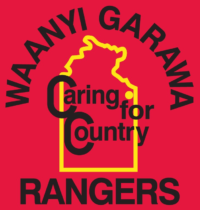
Garawa and Waanyi / Garawa
Together, the Garawa and Waanyi Garawa ranger groups manage over 16,000km2 of Waanyi Garawa and Garawa country. The rangers continue to implement extensive fire management and weed management programs. Aerial and ground burning work has been carried out to optimise biodiversity and defend against wildfire. The rangers have participated in scientific carbon-measuring and analysis with a view to capacity-building and positioning ranger groups and other traditional owners in the carbon marketplace. The ranger group has also commenced cultural documentation work in relation to traditional knowledge in their work area.
Collaboratively working with Traditional Owners, the establishment of the Ganalanga Mindibirrina Indigenous Protected Area (IPA) has increased possibility of engaging more indigenous Rangers on Waanyi Garawa and Garawa country.
Core Activities
Invasive species control, fire management, cultural support, environmental monitoring, compliance.
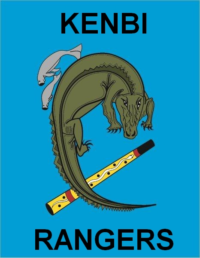
Kenbi
The Kenbi Rangers, based on Cox Peninsula, formed in 2011 initially through support from the Northern Territory government. They are currently funded through the Indigenous Land Corporation’s Real Jobs Program and have a core team of four rangers. Their successful land management activities to this date have led to various contracts with both the private and government sectors that have allowed them to expand their ranger group and assets to include more casual employment and training.
The finalisation of the Kenbi land claim in 2016 after a 37 year long waiting period has unlocked opportunities for the traditional owners and the rangers, and they have developed a Healthy Country Plan to help guide the work of the rangers and to realise these opportunities.
The expansion of their contracts enabled the Kenbi rangers to purchase two in-survey vessels further increasing their land and sea management areas and allowing them to undertake marine surveys and access the nearby Indian Island.
More recently, the Kenbi Rangers engaged in a partnership with scientists from the University of Melbourne that aimed to establish a population of endangered Northern quolls trained to avoid easting cane toads, one of the identified threats to the quolls. The quolls were released in 2017 and the rangers will now have a continuing role in monitoring their health and population growth on Indian Island.
Core Activities
Fee for service environmental and land management activities, research collaborations on sea country, management of sacred sites, managing visitor access to land trust areas.
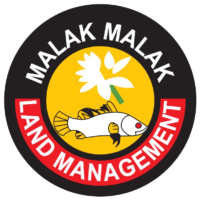
Malak Malak Land and Water Management Rangers
The Malak Malak Land and Water Management Rangers are active in managing 30,000 hectares of land along the Daly River. Their land and sea management activities include managing the intense invasive infestations of weeds of national significance (gamba grass, mimosa and salvinia), fire management, environmental monitoring and scared site protection. The Ranger group breeds and distributes biological control species to help manage the infestations of Salvinia molesta and Mimosa pigra along the Daly River, which has demonstrated high levels of success. Working closely with NT Fisheries, the Malak Malak Rangers have also collaborated on numerous research and training opportunities as well as being identified as a key partner in ensuring permit and fisheries compliance along the Daly River.
Core Activities
Invasive species control, fire management, cultural support, environmental monitoring, sacred site protection, compliance.
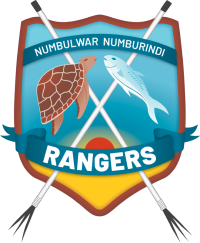
Numbulwar Land and Sea Management
Numbulwar Numburindi rangers manage 3,300km2 of land and sea country. The Rangers commenced operations over a decade ago and have since maintained a strong interest in marine activities. The rangers’ work typically involves coastal surveillance for foreign fishing vessels, irregular arrivals and illegal fishing operations. They also monitor, remove and incinerate ghost nets and other marine debris littering the western Gulf coastline between Blue Mud Bay and Wuyagiba homelands.
Numbulwar Numburindi Rangers’ involvement in land-based activities is expanding. In recent years they have participated in strategic control of weeds and feral animals. In partnership with Yugul Mangi Rangers they participate in the South East Arnhem Land Fire Abatement Project. SEALFA is a commercial carbon farming initiative aimed at mitigating wildfire and thereby reducing greenhouse gas emissions from savanna fires in Arnhem Land.
Both Numbulwar Numburindi and Yugul Mangi Rangers contribute to the Australian Government Department of Agriculture, Water and the Environment's North Australian biosecurity program. They are trained in feral pig autopsy for early detection of exotic diseases and parasites and surveillance of feral stock for signs of commercially significant diseases such as ‘foot and mouth’. They currently provide contract services including surveillance and reporting on exotic vertebrate pests, marine debris and plant health.
The Numbulwar Numburindi Rangers are also responsible for jointly managing the South East Arnhem Land IPA with the Yugul Mangi Rangers.
Core Activities
Invasive species control, fire management, beach and ghost net clearance, cultural support, environment management, compliance.
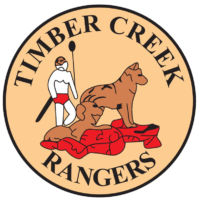
Timber Creek
The Timber Creek Rangers are an ILC Real Jobs Program funded ranger group working out of a very small town in the very large Victoria River District. Based at the northern end of Judbarra-Gregory National Park and surrounded by beautiful plateaus, gullies and rivers, the Timber Creek Rangers engage with numerous land management contracts helping to protect their lands from the ravages of fire and ferals.
In 2016 the Timber Creek Rangers engaged with the Central Land Council on a Ranger exchange where the Rangers collaborated and learnt about varying fire, weed and feral management actions that could be implemented within the Victoria River District. Not only learning about caring for country, the Rangers also stepped out of their comfort zone and went on air, talking about their program and what they.
Future areas of interest for the group will include cultural fire management of the Judburra-Gregory NP in collaboration with Parks & Wildlife staff and the Central Land Council’s Dagaragu ranger group. The rangers are also interested in developing their capacity and operations on the Victoria River in support of traditional owners aspirations to protect and manage important threatened species which depend on the river and its surrounding riparian vegetation zones.
Core Activities
Invasive species control, fire management, cultural support, environmental monitoring, cost recovery, compliance.
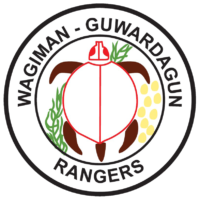
Wagiman
Wagiman rangers undertake land management activities throughout the Wagiman Aboriginal Land Trust, which covers 130,000 hectares. Rangers have focused on treating extensive infestations of Gamba Grass (Andropogon gayanus), Mission Grass (Cenchrus sp.), Bellyache bush (Jatropha gossypiifolia), and Mimosa pigra. Work has been undertaken with collaboration with partners, such as the NT Weeds Branch, Territory NRM and the NLC Wardaman Rangers.
They have also undertaken a major fencing project of sacred sites to protect them against damage from feral pigs, buffalo, horses and cattle. The Wagiman Rangers are very active in engaging in cultural and Traditional Owner activities, including the installation of the Tjuwaliyn arts project (Douglas Hot Springs).
Core Activities
Invasive species control, fire managment, cultural support, sacred site protection, environmental monitoring, compliance.
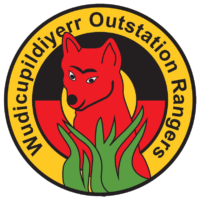
Wudicupildiyerr
The Wudicupildiyerr rangers undertake land and sea management activities throughout the Marrathiel clan estates areas on the Port Keats Daly River Aboriginal Land Trust. The rangers work together with neighbouring ranger groups in the Western Top End to successfully plan and manage early dry season fire regimes throughout the land trust areas. The group is also part of a proposal to implement a carbon savanna fire project across the PKDRALT and derive some income from carbon offsets through their fire management. Rangers have also focused on treating extensive infestations of Mimosa pigra and to a lesser extent, Gamba Grass (Andropogon gayanus), Mission Grass (Cenchrus sp.), Bellyache bush (Jatropha gossypiifolia).
Collaborations between the NT Weeds Branch, TNRM and the neighbouring Thamarrurr ranger group has led to numerous weed control programs, including aerial spraying of Mimosa, which will lead to greater access to country and better management of the cultural and natural resources of the wetlands and flood plain areas.
The rangers also help manage the adjoining coastal and marine habitats on behalf of traditional owner groups by conducting marine debris surveys and helping remove ghost nets which threaten local fish, sea turtle and dugong populations.
Core Activities
Invasive species control, fire management, beach and ghost net clearance, cultural support, sacred site protection, environmental monitoring, cost recovery, compliance.
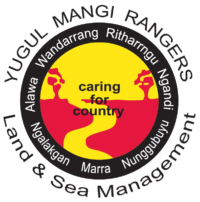
Yugul Mangi Land and Sea Management
Yugul Mangi rangers are core to land and sea management activities throughout 6,700km2 of the Roper-Gulf region. Yugul Mangi Rangers came together in the late 1990’s working on feral pig, weed and dust suppression projects. Today the rangers undertake a broad range of land and sea management activities and in doing so work with many government and scientific agencies.
Yugul Mangi Rangers have a long history of environmental weed control. With support from the Northern Territory Weeds Management Branch they have developed surveillance and response plans for several Weeds of National Significance (WONS) including mimosa, parkinsonia, rubber vine and pond apple. They also have extensive experience in prescribed burning having participated since 2009 in regional greenhouse gas abatement projects. In partnership with the Aboriginal Areas Protection Authority (AAPA) Yugul Mangi Rangers also assist in cultural heritage protection. They recently took part in the survey, documentation and subsequent management of sacred sites in the Roper and Wilton catchments and on near-coastal islands.
As Land and Sea rangers, Yugul Mangi are active on the waters of the Roper River and adjacent IPA coast, north to Wuyagiba. In this capacity they contribute to research into recreational and commercial fisheries, including a long-term telemetric study of fish population behaviour in the Roper River. In addition they provide oversight of recreational and commercial fishing in their area under contract to Department of Primary Industry and Fisheries NT.
Yugul Mangi Rangers have an enduring and productive partnership with researchers from the Macquarie University. This multi-faceted ethno-ecology program has over the past five years supported them to undertake flora and fauna surveys, monitor wetland health, complete fire- plot monitoring, produce a wealth of ethno-ecology material and regularly participate in scientific conferences and symposia.
The Yugul Mangi Rangers are also responsible for jointly managing the South East Arnhem Land IPA with the Numbulwar Numburindi Rangers.
Core Activities
Invasive species control, fire management, beach and ghost net clearance, cultural support, environmental monitoring, compliance.
Related Stories
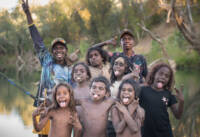
Cool room breakdowns – no problem! Children go hunting at Wagiman Culture Camp
Jul 13, 2020
The otherwise quiet heritage site of Sawmill on the Wagiman Aboriginal Land Trust came to life on July 13 when the annual Wagiman Culture Camp - its diverse lineup of informative and entertaining guests – kicked off.
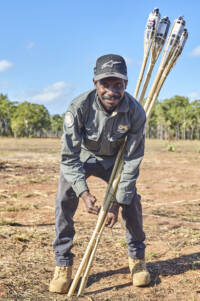
Rangers honing their skills at 2019 Indigenous Ranger Forum
Sep 3, 2019
Hundreds of Indigenous rangers travelled thousands of kilometres from across the Northern Territory, Western Australia and Queensland to learn, grow and share their knowledge last week.
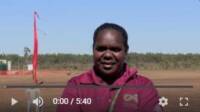
Indigenous Ranger Forum 2019
Dec 4, 2019
Hundreds of rangers from across the Northern Territory, Western Australia and Queensland came together near Darwin in August to share their knowledge and hone their skills.
The NLC welcomes Aboriginal ranger funding extension
Mar 13, 2020
The NLC welcomes the announcement that the NIAA Indigenous Ranger Program funding will be extended for seven years.


